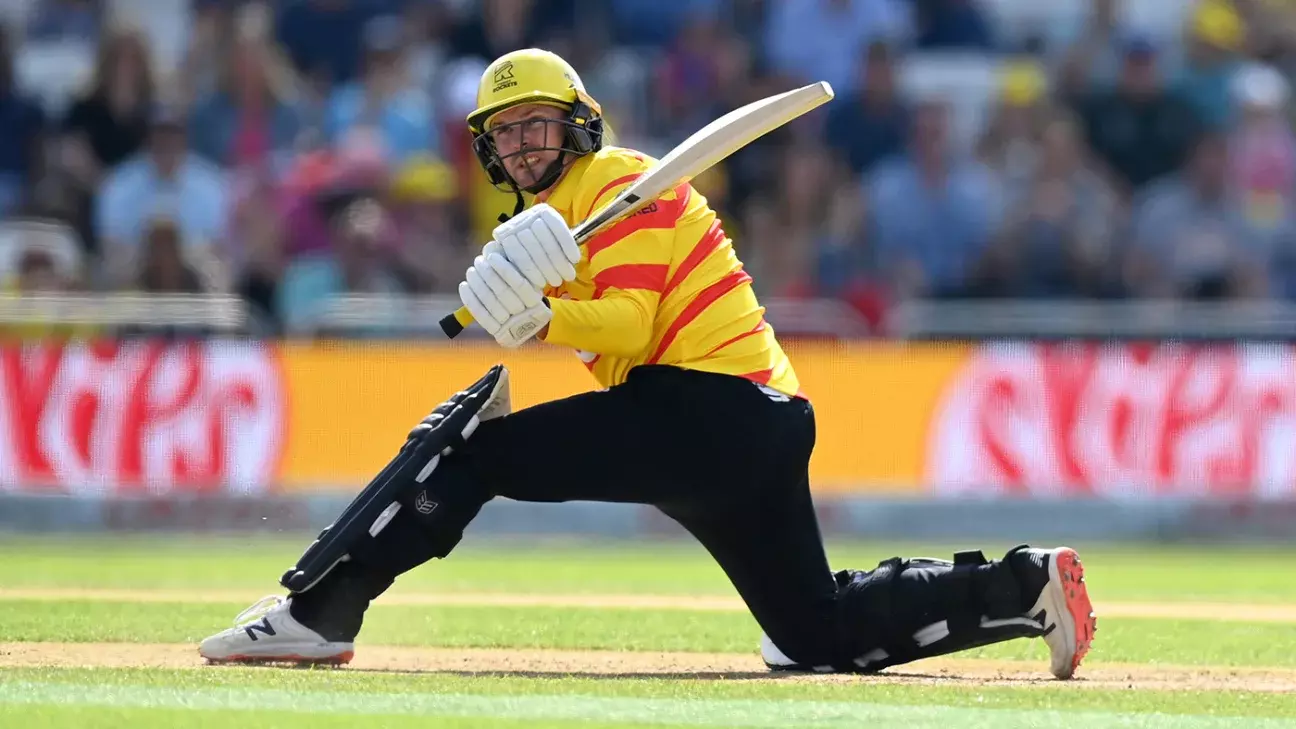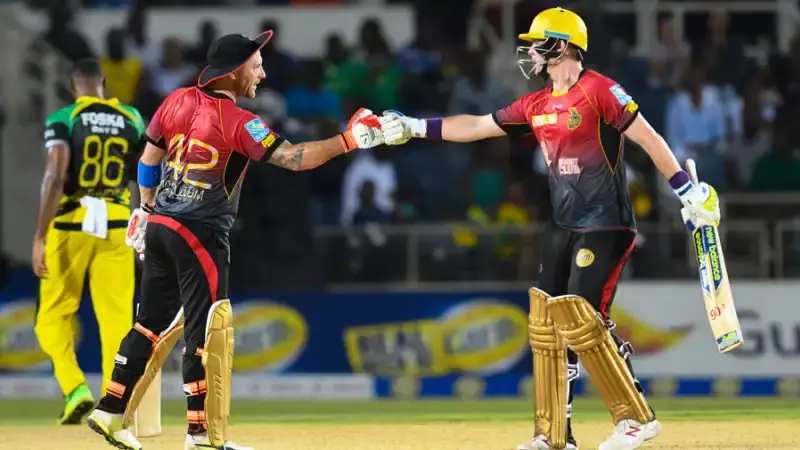Colin Munro averaged 51.58 in first-class cricket and had a 98.79 strike rate. However, he only participated in one Test match.

For the summer of 2023 in England, Colin Munro is back in Nottingham
The Test Cricket Doubts: Munro’s Method Under Scrutiny
Before their T20 match against Derbyshire the next night, Nottinghamshire trained at Trent Bridge on Thursday morning.
At least according to what they stated, their two foreign players, Colin Munro and Shaheen Shah Afridi, were waiting to bat in the nets while standing on the outfield. They were using a phone to watch the World Test Championship final’s opening moments. “Man, Test cricket’s still the best, eh?” I said to Shaheen. Munro narrates.
This revelation could appear out of character for Munro’s professional history. He only played one Test more than ten years ago, and now he freelances for Tigers, Vipers, Rockets, and Outlaws in T20 cricket worldwide. He last struck a red ball in a rage about six years ago.
However, Munro’s potential as a Test cricket player is very speculative. He amassed an astonishing record throughout a 48-match first-class career, scoring 98.79 runs per 100 balls and averaging 51.58 across 48 games. Munro chuckles, “I suit the Bazball mould.
Munro’s first-class statistics are astounding, even considering the flat pitches and tiny grounds in New Zealand. He scored 899 runs for Auckland in one season, 2014–15, most of them from the No. 4 position. In nine matches, that total featured 46 sixes, half of which came in a single innings of 281 off 167 balls.
At the beginning of 2013, when New Zealand was at its lowest point, he played his lone Test in South Africa. They were rocked for 45 in the first of the two Test matches, Brendon McCullum’s debut as captain. In the second, Munro replaced James Franklin as the all-around player at No. 7 due to an injury; he went 0 and 15 in yet another innings loss.

In his lone Test, Munro lacked preparation
“I was underdone,” he remembers. “I was told I would only serve as cover until I was requested to remain on after the T20s. I only did a little red-ball practice with the bat since I was preparing for the one-day series after neglecting my batting in the nets. I was out at the first pitch in the first inning, scored 15, and was never even given another chance.
The door remained closed despite Munro’s consistent high scoring for Auckland in the Plunket Shield and sporadic outings for New Zealand A. He admits, “Honestly, I thought I deserved a spot.” Not simply because of my average but also the number of runs I scored. Because playing Test cricket was what you wanted to do, you were initially really dissatisfied and perhaps angry about it.
He accepted that there might not be a place for another player in the same mould with McCullum counter-attacking in the middle order. Munro speculates that “perhaps he didn’t want to go down the route of having two cowboys in the middle.” “At the time, he likely reasoned that having two aggressive players in the middle order was probably not the wisest course of action. There is room for two or three players to fill the job today.
“It’s like, ‘Oh, will they be able to do it against Starc and Cummins.’ They do it against these lads in one-day cricket, so why not in Test cricket?
On the next Ashes series, Colin Munro’s”
However, Munro saw that some of the players New Zealand chose made him wonder, “How did they get there?” when McCullum resigned in 2016. I needed to ask the management some problematic questions, and they responded that my approach- precisely, how I played first-class cricket- wouldn’t translate to the Test level.
He decided to end his first-class career in the early months of 2018. “I was aware that Test cricket was no longer played. There was useless in putting my body in danger of injury by playing 10 first-class games a season. My wife says everything occurs for a purpose, and since I started my “white-ball journey,” things have gone smoothly.
Colin Munro has always regarded McCullum as his mentor, and it is evident that McCullum has impacted him. Munro says, “He’s helped me mentally more than anything.” ‘Don’t ever get caught up in scoring runs and believing you’re too good,’ he would advise me. ‘And don’t feel too down when you’re not scoring any runs.’
“In the last three years, I’ve turned to those chats frequently to try and maintain my grounding. It doesn’t matter if I get a duck or an 80 off 40 balls. It doesn’t make you a horrible person if it’s not your day, and it doesn’t make you a better person if it is. I’m Colin Munro, and I play cricket for a living; the difference is that I do it in front of the public rather than working from an office answering emails. That and the assurance to start playing my game is my best lesson from him. Few individuals can play as well as I can when I’m at my best.
Like he has done with Zak Crawley since taking over as England’s Test coach, McCullum would instruct Munro to “chase that moment.” “Who is consistent? There are probably only a few players on the planet,” adds Munro. If you’re not the best player in the world, which I am not, you want to play those crucial innings. He’s all about helping guys decide what they want to do and letting them act aggressively. Contrary to what many believe, there is a strategy behind it: relieving pressure when necessary and when they are bowling well. After that, you can pounce once you have a scent.

Together, McCullum and Munro played for New Zealand and in the CPL.
While a young coach, Colin Munro participated in McCullum’s CPL Trinbago Knight Riders club. He talked about choosing your opponents, playing hard, and then playing even harder. Take down the left-handed batter if the left-arm spinner comes on. Don’t only score 10 runs in the over; the game will move faster if you can achieve 18. I don’t know what it is about him, but he makes you feel ten feet tall after a simple talk, whether about cricket, horse racing, or anything else. He has a beautiful way with words to get the point through.
Munro has played with a few active players during McCullum’s stint at Trent Bridge, notably Ben Duckett and Olly Stone. They claimed to feel they had a fresh lease on life thanks to him, recalling why they played the game. It’s enjoyable. It’s about more than doing well enough to stay on the squad for the upcoming tour, contracts, or whatever else. It involves going out there and simply putting on a performance for the audience. Brendon frequently mentions, “We amuse people, and Test cricket is amusing.
Colin Munro begins a reverse sweep
Munro moved to Nottingham a month ago, and he will remain there until the end of August in the village of Edwalton, which is located just south of the city. His wife, son, and daughter will visit the next week and stay with him until the conclusion of the Hundred, after which he will rejoin the Trent Rockets, the defending champions.
It’s good to be able to unpack your baggage for a little while rather than live out of a suitcase or move from hotel to hotel like a cricket player who travels the world. My kids will love getting to travel around England a little.
If his schedule permits, he plans to take them to an Ashes Test: “I don’t believe there’s anything better than watching Test cricket in England. There are 4 or 5,000 individuals back home, yet large crowds are here.
What about the inquiry that is being directed at McCullum and his group? It will be a “crazy good Ashes,” says Munro. It’s like, ‘Oh, will they be able to do it against Starc and Cummins.’ They do it against these lads in one-day cricket, so why not in Test cricket? Read more cricket news and information here at Indibet India, the best cricket news and updates here,

